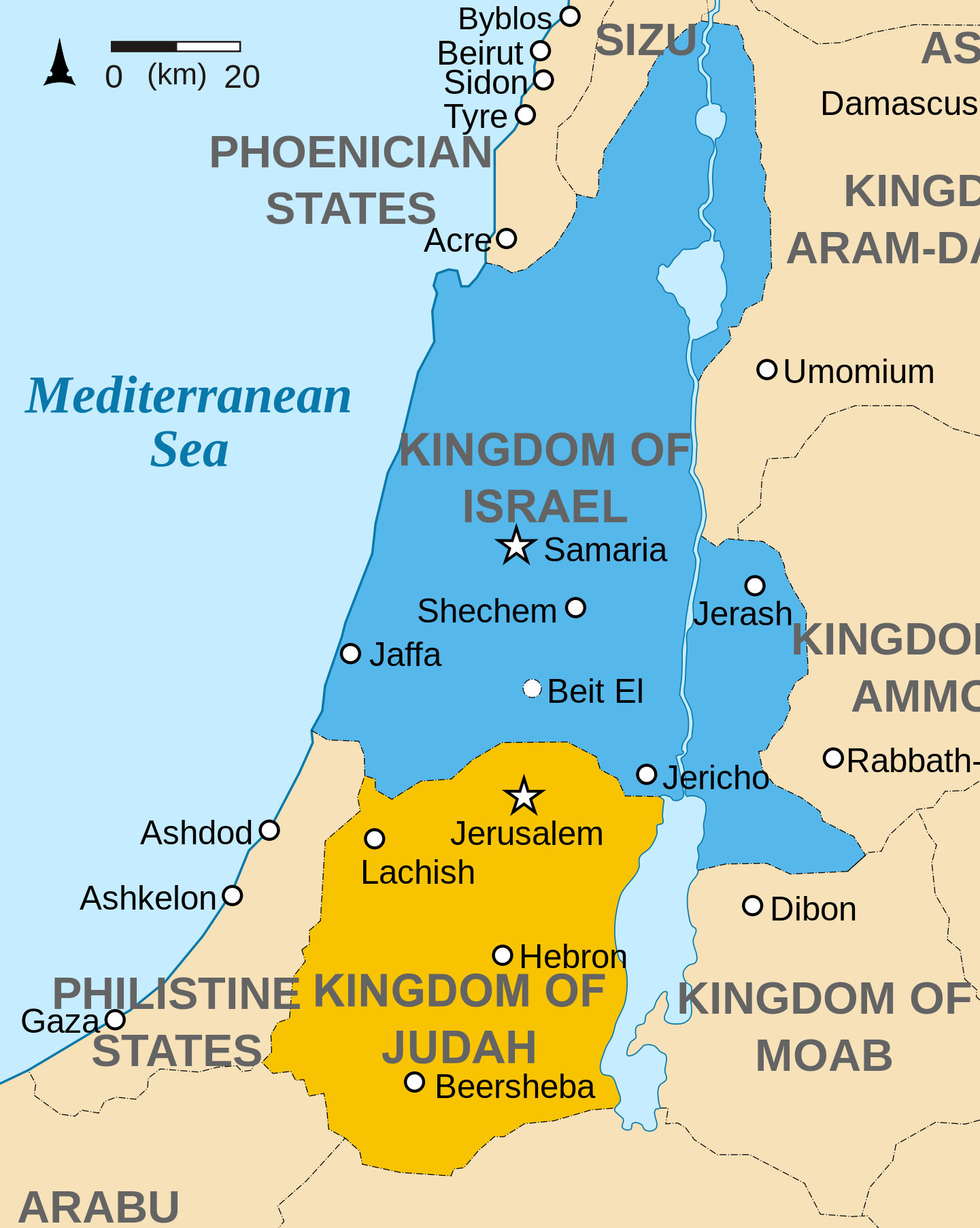Today I’d like to share one of them.
Terrible Kings:
The first thing to know about the political geography of the Old Testament is that Hebrew nation eventually split into north and south (Israel and Judah).
The line of David was maintained in the southern kingdom of Judah. This is the line of kingship which God instituted and promised to preserve in perpetuity. From it came the Messiah, Jesus, the son of David. But along the way were some really terrible kings of Judah. Here are a few:
King Rehoboam: (931 - 913 BC)
When Rehoboam became king, he took the counsel of his younger advisors who urged him to rule harshly. The fruit of this misuse of his power was the aforementioned schism between north and south.
King Ahaz: (732 - 716 BC)
This king was so involved with the worship of foreign gods that he sacrificed his own son to be burned in the altar of Molech. He stole goods from the temple to bribe Assyria. He was ultimately denied burial with the other kings.
King Manasseh: (687–643 BC)
In Jewish literature, Manasseh is accused of killing the prophet Isaiah. He set up idols in the Jewish temple, killed the prophets, and sacrificed his son to Molech.
King Eliakim/Jehoiakim: (609–598 BC)
Jehoiakim was installed to the throne by a foreign power. While in power he had incestuous relations with the women in his family, as well as murdering men and taking their widows. He executed the prophet Uriah. His mismanagement led directly to the destruction of Judah by the Babylonians.
The Lesson:
What is the lesson here? Well, the Davidic monarchy was a divine institution which was crucial to God’s plan of salvation. Those evil kings appear in Matthew’s genealogy of Christ.
But imagine being a pious Hebrew living in Judah during the reign of one of those evil kings. Imagine trying to argue for the criticality of the throne of David when the current Davidic king is sacrificing his children to Molech. Or when his abuse of power drives a schism in the people of God.
He’d look like a fool trying to make the case. And yet, we know he’d be correct.
Same goes for the Church. We have this institution of the Papacy (and the bishops). If the whole history of the Papacy was men being courageous martyrs, writing prophetic encyclicals, embracing the deformed, and standing up to pagan tyrants… it would be easy to see why the Pope is necessary.
But that’s not what we have in Catholic history. At any given time the Pope might be an incompetent fool, a hedonist, a coward, or even a material heretic.
So what am I to do when controversy comes to the papacy? I'm under no obligation to defend the man in Peter's chair. But regarding the institution of the Papacy, I need to grit my teeth and be like the pious Hebrew who defends the institution of the Davidic throne even when its occupant is nuts. I need to make the case - even if I look like a fool doing it.
And in my personal life, I need to remember what Jesus said about another group of disappointing teachers, the Pharisees:
“The teachers of the law and the Pharisees sit in Moses’ seat. So you must be careful to do everything they tell you. But do not do what they do, for they do not practice what they preach.” - Matthew 23:2-3


No comments:
Post a Comment